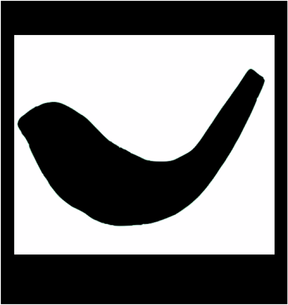| The world we have been given tantalizes us. Most of the time it appears to makes sense. Causes have predictable effects and we are able to shape our actions accordingly. We see that if we do good for others, good comes back our way. But, sometimes, nothing makes sense. Good behaviors that should lead to a fulfilling life seem to be punished with suffering. The righteous suffer and the wicked flourish. What can we do when reality mocks our assumptions about the way the world should work? |
The hidden things belong to Adonai our God, but the revealed are for us and our children forever to do all the words of this Torah (Deuteronomy 29:28).
We learn which of our behaviors lead to our happiness and which lead to our suffering. We try to follow the former and avoid the latter. We never do so perfectly, but we can usually detect where we went wrong when we fail. That is the world that has been revealed to us. It is the world of following the instruction—the Torah—that we have been given.
But there is also a world that has been concealed from us. We are human and limited, so we cannot know what the future holds for us. There are times when the world seems to run without rules and we feel that God is hidden from us. That hiddenness also is a part of the universe we have been given.
This is a teaching that goes further and deeper than just saying (as I often say to my children), "Life isn't fair." If that were really, strictly true, then nothing would make any sense and there would be no point in trying to do what is right.
Instead, we recognize that there is some of each. The revealed world is for us. Within that world, we get to make choices about how we will behave and we are given some assurances about the outcomes we should expect, good and bad. Within the revealed world, we have some latitude. The Torah has given us a basic moral structure for the universe and it is up to us to implement it with social structures and rules of our own devising.
The hidden world, though, is not ours. There is an aspect of reality over which we have no control. We cannot decide what the circumstances of our birth will be. We cannot control the millions of seemingly random variables that effect our lives—what unforeseeable events will test us, challenge us, or torment us. Part of life is learning to accept that we don't get to control everything. Part of how the world works is hidden from us. It belongs to God.
The greatest test of human character is how we reconcile these two ideas. What do we do with the power we have to affect the world? Do we use that power for good or ill? How do we deal with the things that are beyond our control? Do we humbly submit ourselves to a world in which we don't know everything and we can't determine every outcome?
Also, do we allow one of those conditions to overwhelm the other? Does fatalism stifle us from action when we have the power to effect change? Does our arrogance make us struggle senselessly against things that are beyond our ken? How do we know the difference?
As we enter into the Days of Awe, seek clarity between the two. Let the shofar awaken you to the revealed world before you and double in your determination to make it better. Hear the silence between the blasts, too. It is a reminder that our power is limited, we can't do everything, and sometimes the best thing we can do is to accept what is real and what is true.
Other Posts on This Topic:
Yoga and Judaism: The Yoke's on You
Noah: The Redemption of God


 RSS Feed
RSS Feed
